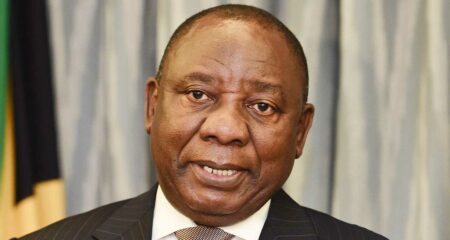
Cape Town mayor Geordin Hill-Lewis on Monday published a 10-point plan that he said would go a long way to resolving South Africa’s energy crisis.
Among the proposed measures Hill-Lewis wants to see implemented by national government are an income tax write-off for capital investments into small-scale generation and battery-storage projects, and a scrapping of the 100MW limit on embedded generation projects.
“The power situation in South Africa is now a fully fledged socioeconomic crisis. We need urgent, strong and clear leadership that shows government has a plan to end load shedding and achieve energy security,” Hill-Lewis said in a statement about his plan.
“In Cape Town, we have begun to procure additional capacity from independent power producers (IPPs) to alleviate the burden on Eskom and end load shedding here over time. This will, in turn, improve the situation nationally. But we need the national government to help us bring more capacity online, quicker,” he said.
Hill-Lewis wants President Cyril Ramaphosa to announce the following 10 steps, which he said will bring the load shedding emergency to an end “as soon as possible”:
- Abolish the 100MW licensing threshold for embedded generation and ensure a registration period for IPPs not exceeding 14 days. “Not only is this threshold arbitrary, but it makes little financial sense. Due to economies of scale, the optimal size for new energy projects is far larger than this, and larger projects offer cheaper electricity per unit.”
- Implement an income tax write-off for capital investment into small-scale generation and battery-storage projects. “This could also be used to subsidise and incentivise home installations of solar PV and battery storage, making home generation affordable to more South Africans.”
- Exempt financially healthy municipalities from all unnecessary legislation and regulations (including those governing municipal procurement) that will delay bringing new generation capacity online. “A minimum-compliance approach must be allowed in respect of tenders for IPP procurement and the construction of municipal own-generation projects.”
- Declare in clear terms that municipalities do not require approval from energy minister Gwede Mantashe for electricity procurement. “Uncertainty in this regard is having a chilling effect on municipalities’ ability to procure new generation and introducing delays; there is no good reason for this to continue.”
- Offer national treasury guarantees in respect of any borrowing — by municipalities and private entities — necessary for IPP generation projects and municipal own-generation projects.
- Waive the department of trade & industry’s local content requirements on solar PV modules until energy security is achieved.
- Exempt electricity traders from energy regulator Nersa’s “onerous” licensing requirements, substituting a registration process in which traders are required to demonstrate compliance with a basic list of requirements only designed to protect public distribution networks.
- Remove the substantial red tape on the establishment of natural gas imports and transport in the Western Cape, unlocking the use of natural gas-powered turbines. “These are cleaner and cheaper than the diesel and jet fuel turbines currently in use.”
- Convert Eskom’s Ankerlig plant in Atlantis, Cape Town to natural gas and run the plant on a “mid-merit basis”, with dynamic output adjusted according to fluctuations in demand.
- Immediately establish a power crisis unit in national treasury, with representation from municipalities and technical experts as well as the finance minister, with the mandate of expediting all interventions that could end the power crisis. “The unit must not just be another government ‘task team’, and must in fact have power to make regulatory decisions. This includes decisions needed for interventions described above, as well as demand-side management, battery storage, new natural gas projects and increasing Eskom’s operational efficiency.
“My message to President Ramaphosa is that this problem is solvable if we all work together. But it requires clear and decisive leadership, and a willingness to do things differently,” Hill-Lewis said. – © 2022 NewsCentral Media




